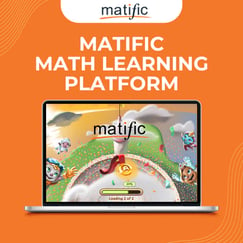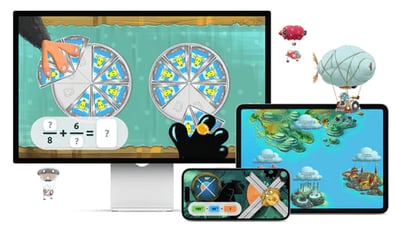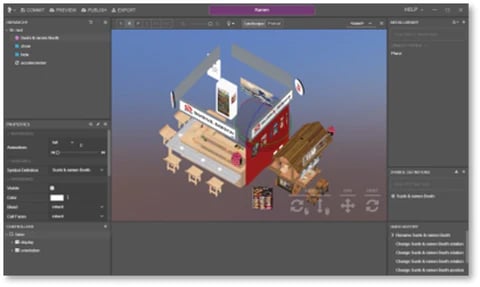Tech Trends in Education Revolutionizing the Learning Experience
As technology continues to evolve, its influence can be seen in various aspects of our lives, including education. From interactive learning platforms to virtual classrooms, the integration of technology in education has opened up new horizons for educators and students alike. In this blog post, we will explore some of the exciting tech trends that are revolutionizing the way we learn and teach.
1. Gamification: Learning Made Fun
Gone are the days of monotonous lectures and dull textbooks. With the rise of gamification, learning has become much more engaging and interactive. Gamification involves incorporating game elements, such as competition, rewards, and challenges, into the learning process. This approach not only captures students' attention but also motivates them to actively participate in their education.



Example of learning with games using the Matific platform
2. Adaptive Learning: Tailored to Individual Needs
Every student is unique, with different strengths, weaknesses, and learning styles. Adaptive learning technologies leverage artificial intelligence to personalize the learning experience. These platforms analyze students' performance and dynamically adjust the content and pace of learning to suit their individual needs. By providing customized learning pathways, adaptive learning ensures students receive the support they require, promoting better understanding and retention of knowledge.
3. Virtual and Augmented Reality: Bringing Lessons to Life
Imagine exploring ancient civilizations, dissecting a frog, or even traveling to outer space, all from the comfort of your classroom. Virtual and augmented reality technologies have made this a reality. By immersing students in virtual environments or overlaying digital content onto the real world, these technologies enhance experiential learning. They enable students to visualize complex concepts, increasing their comprehension and making lessons more memorable.


Example of coding programs on Kalodu
4. Collaboration Tools: Breaking Down Barriers
In today's interconnected world, collaboration has become an essential skill. Technology provides various tools and platforms that foster collaboration among students, regardless of their physical location. Through online discussion boards, video conferencing, and shared documents, students can work together on projects, exchange ideas, and gain a deeper understanding of different cultures and perspectives. These collaborative tools not only promote critical thinking and problem-solving but also prepare students for the demands of the modern workforce.
5. Artificial Intelligence: Transforming Assessment and Feedback
Gone are the days of standardized tests and lengthy grading sessions. Artificial intelligence (AI) is revolutionizing the way assessments are conducted and feedback is provided. AI-powered tools can quickly analyze large amounts of data, providing instant feedback on assignments, identifying areas for improvement, and even tailoring future learning experiences. This real-time feedback promotes self-reflection and enables students to take ownership of their learning journey.
Conclusion
The integration of technology in education has brought forth a wave of innovation, transforming the learning landscape. From gamification and adaptive learning to virtual reality and artificial intelligence, these tech trends are enhancing the educational experience for students around the globe. While they may not be essential, exploring and embracing these trends can provide educators with valuable tools to engage students, promote deeper understanding, and prepare them for the challenges of the digital age. So, why not dive into the world of educational technology and explore the possibilities it offers?



.jpg?width=352&name=Featured%20Image%202%20copy%20(2).jpg)